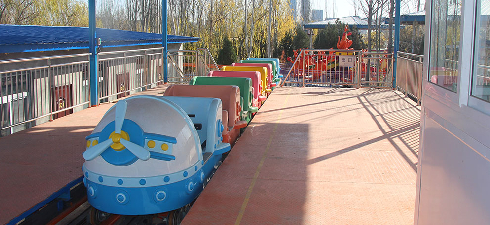- Albanian
- Arabic
- Belarusian
- Bengali
- Czech
- English
- French
- German
- Hebrew
- Hungarian
- Indonesian
- irish
- Italian
- Japanese
- kazakh
- Persian
- Russian
- Thai
- Uzbek
- Vietnamese
Feb . 17, 2025 18:34
Back to list
roller coaster cart for sale
Searching for the perfect roller coaster cart for sale can be both exciting and overwhelming. Whether you are a theme park enthusiast looking to embellish your collection, a business seeking to enhance your amusement offerings, or an engineer aiming to study amusement ride dynamics, understanding key aspects of these carts is crucial to making an informed purchase decision. Here we delve into comprehensive insights about roller coaster carts, their intricacies, and how they align with your specific needs—all through the lens of experience, expertise, authoritativeness, and trustworthiness.
Brand reputation also plays a critical role in ensuring that the product you are purchasing is reliable. Established manufacturers often adhere to stringent quality control measures, offer warranties, and provide after-sales support. Engage with brand reviews and customer testimonials to gauge overall satisfaction. Trustworthy suppliers typically have a notable track record, reflected through partnerships with renowned amusement parks or industry certifications. Another vital aspect to consider is the cart’s design technology. The evolution of roller coaster cart technology has seen the advent of maglev and steel coaster variants that promise smoother rides and higher speeds. With technological advancement, some modern carts incorporate cutting-edge aerodynamics to optimize ride comfort and performance. Consulting with industry experts about the advantages of these innovations can help you determine whether traditional or contemporary models align best with your operational vision. Customization options are an additional feature that can enhance the aesthetic and functional appeal of the carts. Businesses might choose to customize carts to align with a theme, boosting attraction and patronage. Consider engaging design specialists to ensure your custom designs remain within safety parameters while reflecting your brand’s identity. For those new to the amusement industry, reaching out to an experienced consultant can provide indispensable insights. Leveraging their authoritative knowledge about current market trends, they can guide potential buyers through the complex landscape of roller coaster cart procurement. In summary, purchasing a roller coaster cart involves a mix of technical knowledge, industry insight, and detailed research. By prioritizing safety, material integrity, load capacity, brand reliability, technological advancements, and customization, buyers can make informed decisions that promise value and longevity. Engaging with industry professionals and consulting empirical resources builds a foundation of trust, cementing your investment as both wise and forward-thinking.


Brand reputation also plays a critical role in ensuring that the product you are purchasing is reliable. Established manufacturers often adhere to stringent quality control measures, offer warranties, and provide after-sales support. Engage with brand reviews and customer testimonials to gauge overall satisfaction. Trustworthy suppliers typically have a notable track record, reflected through partnerships with renowned amusement parks or industry certifications. Another vital aspect to consider is the cart’s design technology. The evolution of roller coaster cart technology has seen the advent of maglev and steel coaster variants that promise smoother rides and higher speeds. With technological advancement, some modern carts incorporate cutting-edge aerodynamics to optimize ride comfort and performance. Consulting with industry experts about the advantages of these innovations can help you determine whether traditional or contemporary models align best with your operational vision. Customization options are an additional feature that can enhance the aesthetic and functional appeal of the carts. Businesses might choose to customize carts to align with a theme, boosting attraction and patronage. Consider engaging design specialists to ensure your custom designs remain within safety parameters while reflecting your brand’s identity. For those new to the amusement industry, reaching out to an experienced consultant can provide indispensable insights. Leveraging their authoritative knowledge about current market trends, they can guide potential buyers through the complex landscape of roller coaster cart procurement. In summary, purchasing a roller coaster cart involves a mix of technical knowledge, industry insight, and detailed research. By prioritizing safety, material integrity, load capacity, brand reliability, technological advancements, and customization, buyers can make informed decisions that promise value and longevity. Engaging with industry professionals and consulting empirical resources builds a foundation of trust, cementing your investment as both wise and forward-thinking.
Next:
Latest news
-
Double Ferris Wheel Sale | Premium Custom RidesJul.31,2025
-
Flume Ride-Hebei Zhipao|Water-Based Attraction, Safety Standards, High-Speed DescentJul.31,2025
-
Flume Ride: Thrilling Water-Based Adventure & Advanced Engineering - Hebei ZhipaoJul.31,2025
-
Flume Ride-Hebei Zhipao Amusement Equipment Manufacturing Co., Ltd.|Thrilling Water Attraction&Customizable DesignJul.30,2025
-
Flume Ride - Hebei Zhipao Amusement Equipment | Water Coaster, Thrilling DescentJul.30,2025
-
Flume Ride - Hebei Zhipao | Thrilling Water AttractionJul.30,2025
